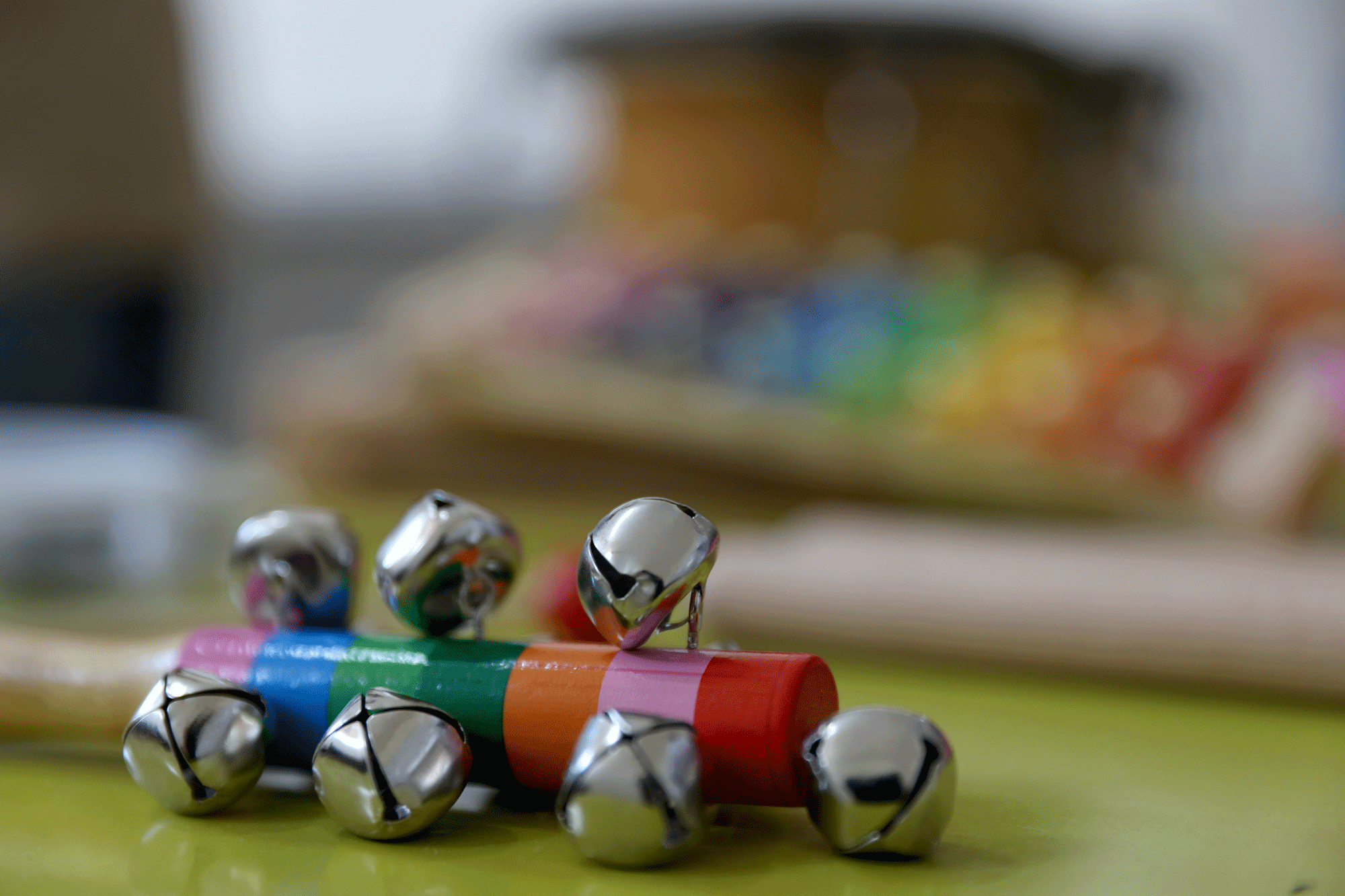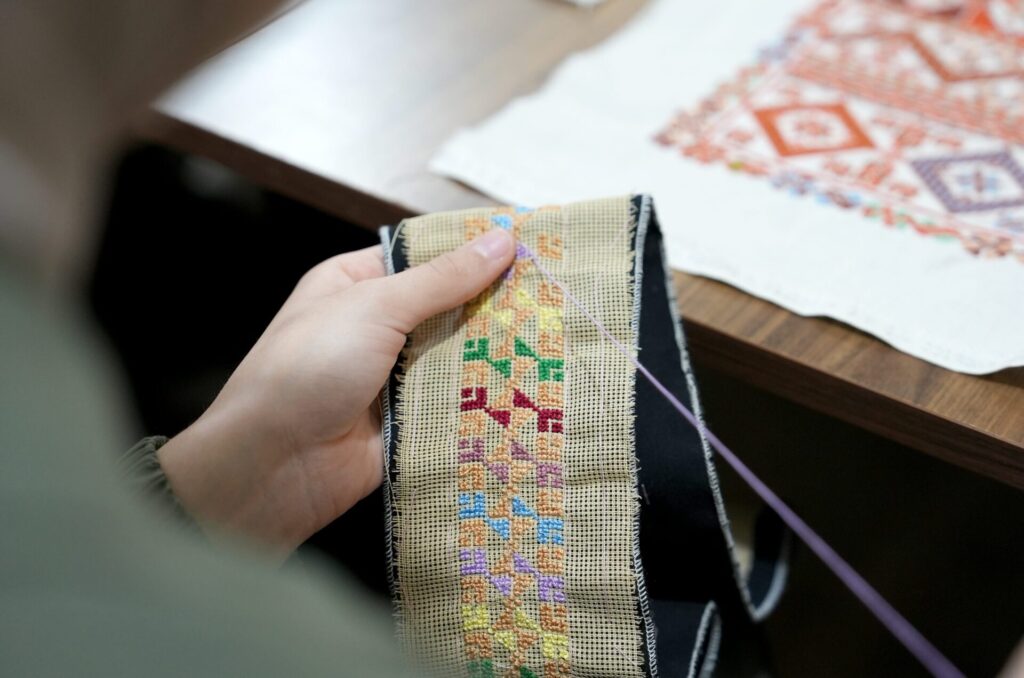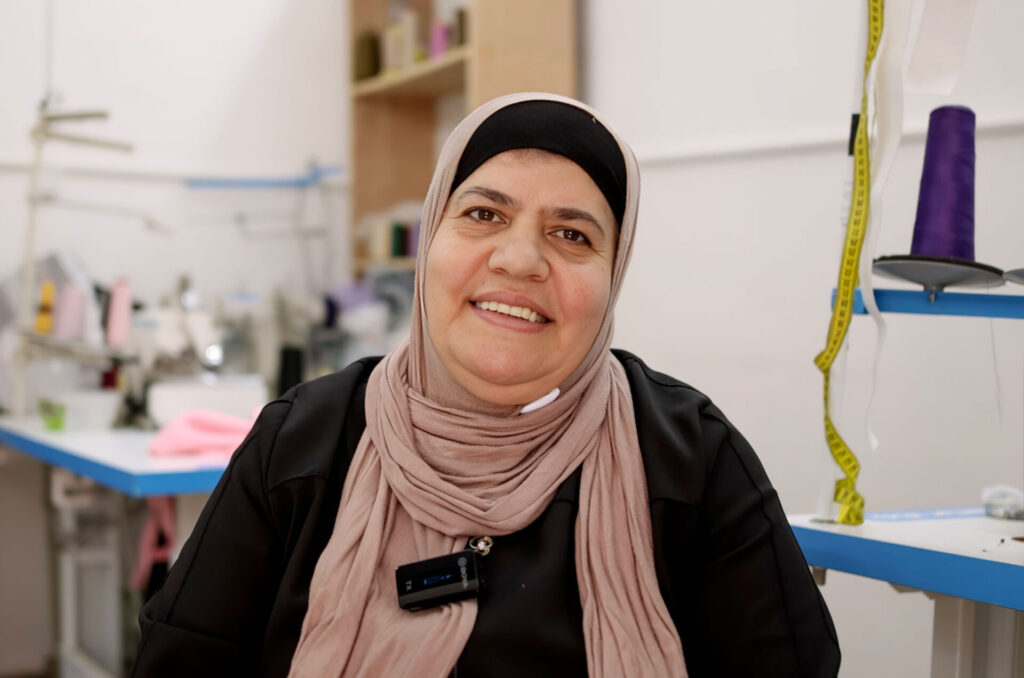May, 2025
How Music Therapy is Helping Children in Lebanon Heal
In a small room filled with young voices, sounds of violins, guitars, and percussion echo through the corridors of the National Institution for Social Care and Vocational Training (NISCVT). Children are learning to express what words alone cannot. At these centers in Lebanon, music is becoming a powerful tool for healing.
.
With support from Anera, NISCVT has introduced music therapy in four of its centers, pairing instruments with expert mental health care. Through a holistic approach that includes the salaries of psychotherapists and psychiatrists in five centers and the provision of 14 essential mental health medications for children, the program is helping Palestinian refugee youth heal, focus, and thrive.
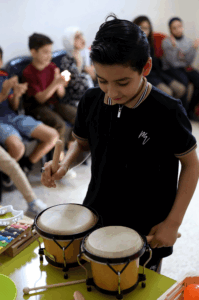

"We see music as nourishment for the soul — a feast for the spirit."
“We see music as nourishment for the soul — a feast for the spirit,” says Mahmoud Al Jomaa, NISCVT’s field coordinator in Tyre. “It gives children and youth emotional support and a sense of protection. It also broadens their perspective and opens their minds to the world.”
NISCVT runs three orchestras: a string ensemble, an oriental music group, and a Western-style band. But music therapy is the latest and perhaps most transformative chapter in their work.
“Many of the children we work with, especially those in our special education program, struggle with concentration and learning. These students often face challenges that put them at risk of dropping out early. Through music therapy, we aim to strengthen their focus and help them reconnect with their sense of self.” Mahmoud explains.
We build community
Our work in livelihoods, infrastructure and sports strengthens ties.
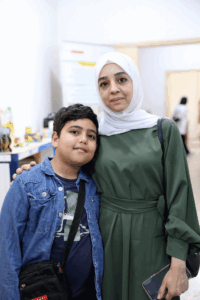
Instruments of Expression
For 10-year-old Joud, a Palestinian refugee in Lebanon, music isn’t just therapy, it’s a dream. “When I grow up, I want to be a guitar player. I just love how the guitar sounds; it makes me feel happy inside.”
Ali, also 10, lights up when he talks about playing percussion. “When I play, I feel amazing — like I forget everything around me. It also reminds me of my Palestinian roots and dabke, which I love. And I want to be an architect too when I grow up!”
Ahmad, another 10-year-old Palestinian refugee, adds: “When I come here, I feel calm. The music helps me understand my feelings. I’m really happy to be here with my friends and teachers. Music makes me feel so, so happy.”
These children are learning more than chords and rhythms; they’re discovering self-worth, managing anxiety, and building hope for the future.
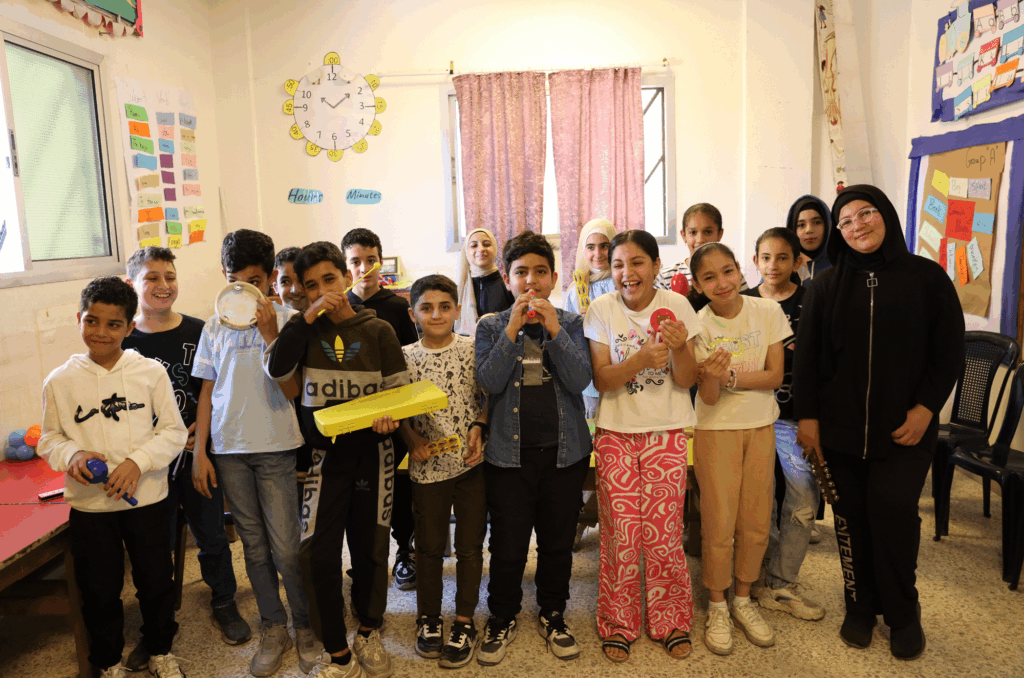
A Parent’s Perspective
The impact reaches far beyond the classroom. Parents are witnessing profound changes at home.
“My son had speech delays and difficulty expressing himself,” says Nisrin Kassem, a mother of a young participant. “Since starting his sessions at NISCVT, we’ve seen a dramatic improvement. His speech has come a long way in both Arabic and English, and he’s much more focused now.”
She attributes much of that progress to music therapy.
“It reduced his hyperactivity, helped him regulate his emotions, and most importantly, boosted his self-esteem. That’s what I’m most proud of is seeing him feel confident in himself.”

"...the activities here, especially music therapy, helped them manage their emotions and energy."
Amal Ayoub, a mother of two children in the program, says her family has seen similar changes.
“At first, they weren’t very interested in school. But the activities here, especially music therapy, helped them manage their emotions and energy. Now, they’re calmer and happier at home, and their performance at school has improved. With so few public spaces for children to play and release their energy, this kind of program is essential. Music therapy gives them a healthy outlet and a safe space to grow.”
Healing with Harmony
Anera’s support for mental health services at NISCVT reflects a deep belief in holistic care. Providing access to medication, trained professionals, and creative expression tools like music therapy ensures that children receive not just care, but dignity and opportunity.
“This program trains them to listen, feel, and engage more deeply — not just with the music, but with themselves and the world around them,” says Mahmoud.
In a region where trauma often lingers just beneath the surface, music becomes more than an art form—it’s a path toward healing.
Help Us Keep the Music Playing
Your donation helps Anera fund mental health services and music therapy programs for children who need them most
Lebanon
South Governorate
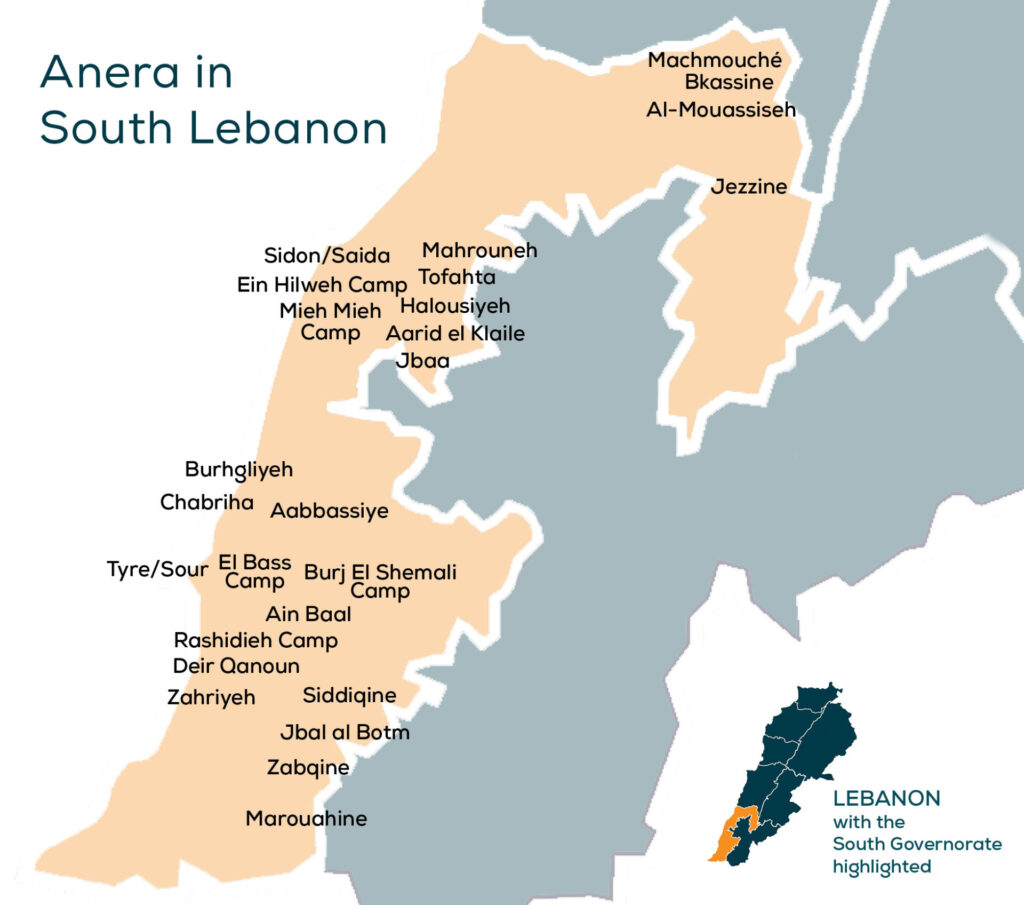
The South Governorate of Lebanon is a beautiful place with white beaches, archeological ruins, bustling old souks, fertile fields of citrus and banana trees, and a deep history. Its residents are from different religions: Shia and Sunni Muslims, Druze, Eastern Orthodox, Maronite, Protestant, and Greek Catholic Christians. Its biggest cities are also the third and fourth largest in the country, Saida and Tyre.
